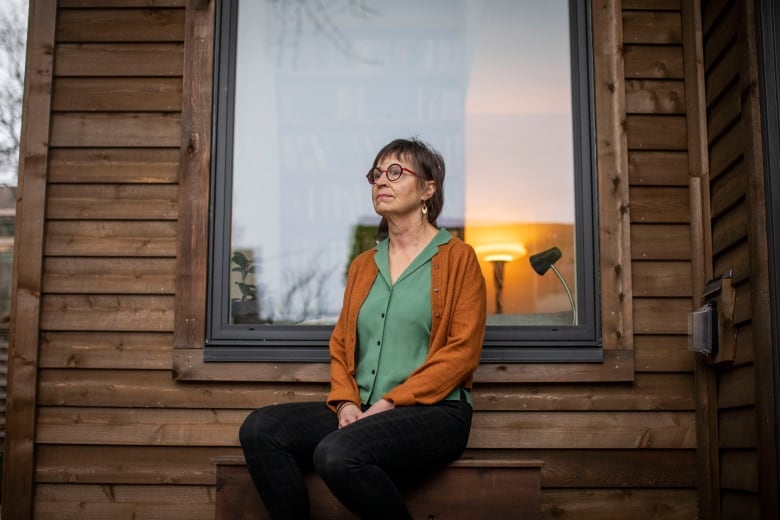Federal tax credit for multi-generational home renovations good start but not enough, experts say
More families are opting to live together in multi-generational homes amid rising costs and housing challenges

Morie Ford and her husband have been 'empty nesters' for the past 15 years. But that changed last month when their daughter and her partner moved into their newly constructed laneway house.
Ford says the rising cost of living and the unaffordable housing market has spurred many, like her daughter, to move back home.
"It was actually my daughter's idea."
"[They] couldn't afford to move into Vancouver's Mount Pleasant on their own, and she just said to us one day, 'Why don't we build a laneway?'"
Ford is one of many families across B.C. transitioning to multi-generational homes, where several generations of a family, grandparents, adult children and grandchildren, live together.
Last spring, the federal government introduced a tax credit for families looking to renovate their homes and accommodate more people.

What is it? Who is eligible?
The multi-generational home renovation tax credit became available on Jan. 1, 2023.
It provides a one-time 15 per cent tax refund for renovation costs up to $50,000 for a secondary unit with a private entrance, kitchen, and bathroom.
To be eligible, the resident of the renovated unit must be a family member who is a senior or an adult with a disability.
The maximum $7,500 refund can be used toward the cost of permit fees and renovation goods and services.
People interested in applying can do so on their 2023 income tax return next year.
Changing times
UBC professor Tom Davidoff says the subsidy adds value amid a climate of rising interest rates and rental fees.
"Adding housing units is something we need to do in Canada. So if people choose to consume less housing by sharing some of their housing with a relative, that's great."
B.C. Seniors Advocate Isobel Mackenzie says this is one of many changes being brought forward by the federal government to encourage families to live together as they grow older.
"Seniors want to live at home," she said, adding families benefit from decreased costs for daycare, long-term care, and even groceries.
"It makes sense on both a human level and on the economic level to support people to live at home for as long as possible."
Affordability challenges
While the credit is a "step in the right direction," experts say it's not enough to encourage families to take on expensive renovation projects.
TQ Constructions CEO Henri Belisle has seen a surge in multi-generational home renovations in recent years.
He says families can expect costs close to $500,000 for a secondary unit — 10 times more than the maximum $50,000 the credit can be applied to.
"The tax rate that's being offered doesn't quite make a dent. It's a large, large investment in a home and transformation," said Belisle.

As a Mount Pleasant Neighbourhood House co-ordinator, Ford works with many newcomer and refugee multi-generational families. She says they would not be able to afford $50,000 in renovations.
"It's too many restrictions," she said.
"How could they possibly start to figure all this out and go through all those hoops?"
Mackenzie says families renovating for seniors or adults with disabilities are driven by need rather than the financial incentive of the refund.
"[Tax credits] give an impression of more financial assistance than what is really happening. But they generally don't fundamentally make something unaffordable, affordable."
Mackenzie says there are grants and the province's renovation tax credit for an added $1,000 of support.
Ford says her family is not eligible for the credit, as her daughter resides in the laneway and doesn't meet the criteria of being a senior or person with a disability — a limit she finds frustrating, as the credit would have been welcome for their costly project.
"Something is better than nothing," she said.
Ford and her husband plan to move out of their residence and into the laneway once their daughter's family grows.
In the meantime, they're happy to have her back home.
"It is so important that we keep young people in our communities," she said, "And we have to continue to find ways to do that."
With files from BC Today

